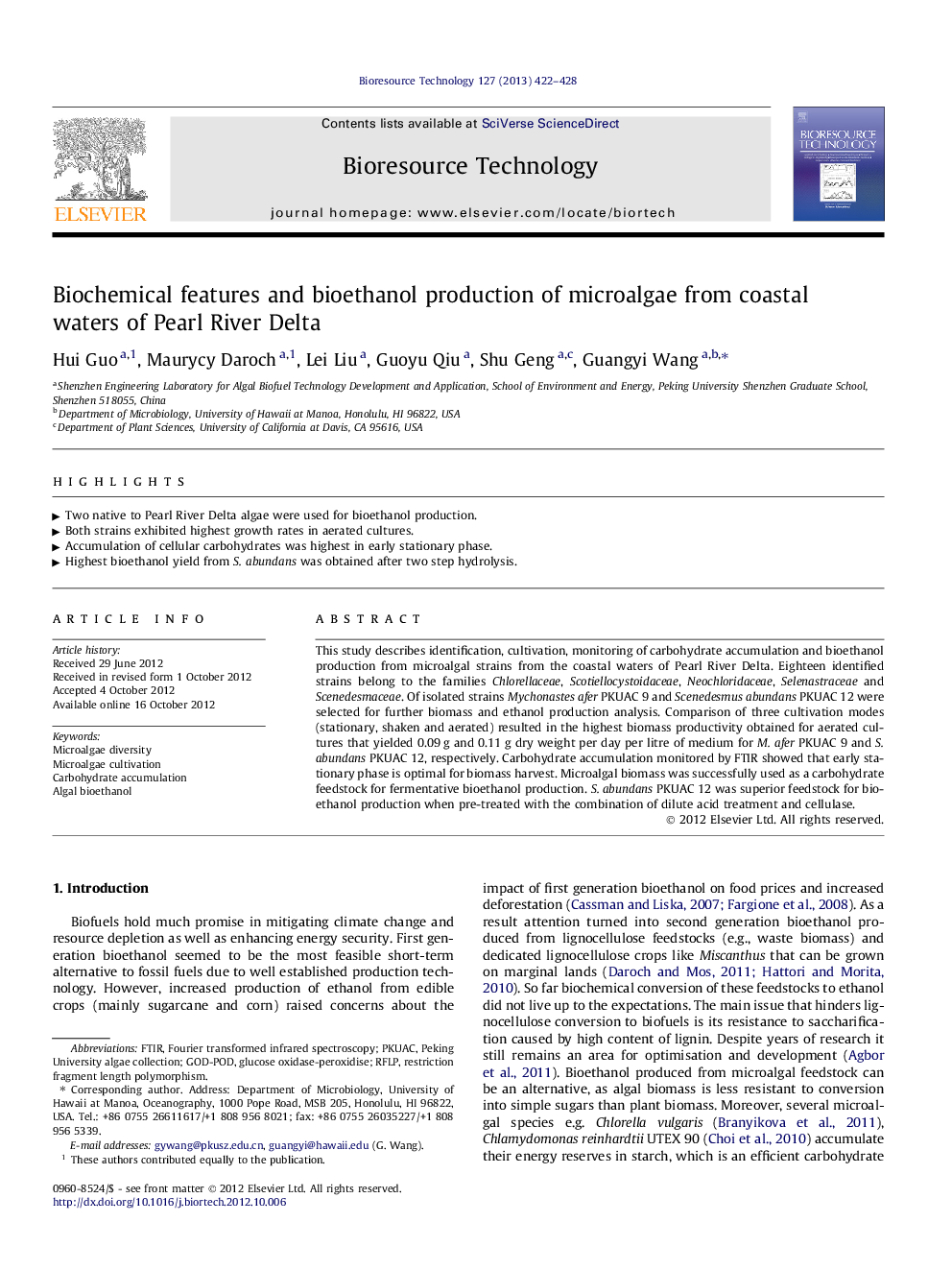| Article ID | Journal | Published Year | Pages | File Type |
|---|---|---|---|---|
| 681205 | Bioresource Technology | 2013 | 7 Pages |
This study describes identification, cultivation, monitoring of carbohydrate accumulation and bioethanol production from microalgal strains from the coastal waters of Pearl River Delta. Eighteen identified strains belong to the families Chlorellaceae, Scotiellocystoidaceae, Neochloridaceae, Selenastraceae and Scenedesmaceae. Of isolated strains Mychonastes afer PKUAC 9 and Scenedesmus abundans PKUAC 12 were selected for further biomass and ethanol production analysis. Comparison of three cultivation modes (stationary, shaken and aerated) resulted in the highest biomass productivity obtained for aerated cultures that yielded 0.09 g and 0.11 g dry weight per day per litre of medium for M. afer PKUAC 9 and S. abundans PKUAC 12, respectively. Carbohydrate accumulation monitored by FTIR showed that early stationary phase is optimal for biomass harvest. Microalgal biomass was successfully used as a carbohydrate feedstock for fermentative bioethanol production. S. abundans PKUAC 12 was superior feedstock for bioethanol production when pre-treated with the combination of dilute acid treatment and cellulase.
► Two native to Pearl River Delta algae were used for bioethanol production. ► Both strains exhibited highest growth rates in aerated cultures. ► Accumulation of cellular carbohydrates was highest in early stationary phase. ► Highest bioethanol yield from S. abundans was obtained after two step hydrolysis.
